Laureates of Geneva Prize for Human Rights in Psychiatry,
Years 2000, 2002, 2005, 2008, 2011, 2014, 2017 and 2021
The Geneva Prize for Human Rights in Psychiatry was created in Geneva (Switzerland) in 1999, on the occasion of the 50th anniversary of the Universal Declaration of Human Rights.
It is intended to recognize a person, without restriction of gender, age or nationality, or an institution or association with governmental or non-governmental status, for distinguished achievement at national, regional or international level in promoting equity, humanity or excellence in psychiatric care, reducing ignorance about and discrimination against psychiatric patients, and encouraging the application of human rights and ethics in psychiatry.
Year 2000
An international jury presided over by Mr. Robert Badinter, former French Minister of Justice, awarded the Prize for the first time on 15th September 2000 to Geneva Initiative on Psychiatry, an association based in The Netherlands. Dr. Jim Birley, past chairman, received the price.
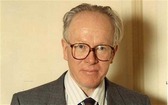
Board of the Geneva Initiative on Psychiatry: Pr Robin Jacoby, chairman, Dr Robert van Voren, general secretary, Dr Roelof ten Doesschate, treasurer .

Video of Robert van Voren
The jury chose to make the award to Geneva Initiative on Psychiatry not only for its past work in combatting political abuse of psychiatry in the Soviet Union and other countries, but also, and most especially, for its remarkable work in helping psychiatric patients and former victims of totalitarian psychiatry; together with its avant-garde initiative of launching and coordinating the network of Reformers in Psychiatry, established to improve the standards of mental health care in the countries of Central and Eastern Europe and in States previously composing the Soviet Union.
Year 2002
That year, the international jury presided over by Professor Pierre-François Unger, Minister of Health of the Canton of Geneva (Switzerland), recommended that the Prize be divided between HH. Hospitalarias Sagrado Corazón de Jesús (headquarters Rome, Italy), and Professor Roy M. McClelland from Belfast (Northern Ireland).
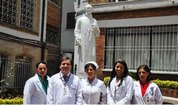
The Hospitalarias Sagrado Corazón de Jesús have established institutions on all continents, particularly in Latin America and Africa, to care for mentally ill women and women with out-of-marriage children, whom they receive, listen to, treat, and follow up in day centers and sheltered workshops.

Professor Roy McClelland was central to the effort to produce, in collaboration with European colleagues, guidelines relating to confidentiality and the conflict between public interest and the interest of the patient.
The Prize was presented to the two laureates on 1st April 2003, on the occasion of an international congress organized in Geneva by the International Psychogeriatric Association.
Year 2005
An international jury presided over by Mrs. Ruth Dreifuss, former President of Switzerland, awarded the Prize to Dr. Jorge Luis Pellegrini, from Argentina.
Dr. Pellegrini has defended human rights in psychiatry throughout his life and was himself a victim of the violation of these rights by the Argentinian military dictatorship. Immediately after completion of his medical training, Dr. Pellegrini committed himself to the promotion of social psychiatry and the reform of traditional psychiatric institutions. His activities in favour of schooling for handicapped children; of the social integration of the indigenous population of Patagonia; of the treatment and rehabilitation of people with alcohol-related problems; of the development of out-patient care and social rehabilitation for people with mental illness, all bear witness to a coherent and innovative professional path. The governing idea of his engagement was the empowerment of patients and their families, as well as the fight against discrimination of any sort, and programmes of training and information for the public. During the military dictatorship, Dr. Pellegrini was excluded from the university and subsequently from the hospital before being arrested, imprisoned, liberated and again imprisoned. During these years of political persecution, he continued his social engagement and also produced a book about a Mapuche Indian family. This was later turned into a film, raising awareness about the plight of the Indian population in Argentina.
The Prize was presented to Dr. Pellegrini on the occasion of the XIIIth World Congress of Psychiatry held in Cairo (Egypt) in September 2005.

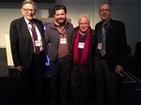

The last picture is a video link
Special Mentions in 2005
The Jury was also impressed by three other programmes and recommended to the Foundation that the following three programmes receive a Special Mention for their achievements. Each programme functions in a different cultural and institutional environment, and each was considered particularly worthy of distinction because of exceptional engagement to the recognition of the fundamental rights of psychiatric patients. Each of them contributes to making public opinion sensitive to the possibilities and needs of mentally ill people.
• In Albania the Marcela Programme, conceived and implemented by ASED (Association for Support of Childhood in Distress), created in Geneva by Jean-Luc and Maryam Nicolier, combines training, the establishment of infrastructures for living, working and transportation, information of the public, and legislative reforms in order to ensure the care and social integration of mentally handicapped children. Faced with the heavy legacy of a near-prison system and with the economic and political difficulties of a society in transition, the Marcela Programme mobilizes the resources and goodwill of people dedicated to supporting children in distress in Albania, as well as in Switzerland.
• In Ivory Coast the St. Camille Association of Lellis, created in Bouaké by Grégoire Ahongbonon, helps people excluded from society, among whom many are people with mental retardation and mental illness. Grégoire Ahongbonon works with exceptional commitment in villages and with families in which people are considered as incurable – or possessed by the devil – are chained, and deprived of care. The provision of care and social and economic reintegration are accompanied by a constant effort to make communities and authorities aware of the needs of these excluded people.
• In India, in the Tamil Nadu State (Chennai), the Schizophrenia Research Foundation (SCARF) brings together psychiatrists, psychologists, social workers, rehabilitation specialists and nurses, who offer in- and out-patient services to people suffering from schizophrenia. This non-governmental organization also brings together families of patients and the community and helps them in their fight against the stigmatization and discrimination of mentally ill people.
Year 2008
The Prize was awarded to Dr. Semyon Gluzman, from Kiev (Ukraine). Dr. Gluzman was chosen unanimously by the jury presided over by Mrs. Ruth Dreifuss, former President of Switzerland.
The Prize was presented to Dr Gluzman in Prague (Czech Republic) on septembre 25th 200,8 on the occasion of the XIVth World Congress of Psychiatry .


In his fight for human rights in psychiatry, Dr. Gluzman distinguished himself by his exceptional courage and constancy both in the political field and during his medical and scientific career. His refusal to participate in the use of psychiatry against political dissidents, as well as his denunciation of abuses in this field, earned him a sentence of seven years’ imprisonment in a work camp and three years of exile. Immediately upon his return to Ukraine, Dr. Guzman pursued his medical, scientific and social activities, working towards the reform of psychiatric treatments and the recognition of the ethical principles that must govern them. He contributed to the modification of Ukrainian legislation in this area. His book Soviet Totalitarian Psychiatry, published in 1989, remains a reference book on abuses of psychiatry.
Year 2011
An international jury presided over by Mrs. Ruth Dreifuss, former President of Switzerland, awarded the Prize to Dr. Naasson Munyandamutsa from Rwanda.
Following the genocide of 1994, Dr Munyandamutsa developed considerable activity in his country to help victims to overcome its consequences in the mental health domain. The jury was convinced by Dr. Munyandamutsa’s commitment, as well as by the scale of the task he carried out in the field. His personal itinerary was considered to be outstanding and Mrs. Dreifuss emphasized that he deserved special merit for “placing psychiatry at the nucleus of public health policy, working in the African continent so often deserted by psychiatry”.
Dr. Munyandamutsa reinstated the operation of the only existing psychiatric hospital in Rwanda. He largely contributed to reconstituting the country’s professional network, which had been decimated by the massacres. In addition, he actively participated in the crucial mental health and community health projects developed since 2006 by Médecins du Monde and the Rwandese association IBUKA, most of whose members were themselves victims of the genocide.
Dr. Munyandamutsa is the author of a poignant description of his pioneer work (The matter of meaning and references in psychological traumatism. Reflections around the clinical observation of children and adolescents who survived the Rwandese genocide in 1994). He contributed several publications on the matter and particularly cooperated in the collective writing of The Tutsi Genocide in Rwanda. An abjection for humankind, a failure for humanitarians.
Dr. Munyandamutsa has bonds with Switzerland. After graduating in Medicine at the University of Butare (Rwanda), he pursued a specialization in psychiatry and psychotherapy at the Geneva University Hospital, as well as at the Psychiatric Hospital of Malévoz, in the Canton of Valais.

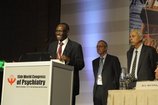
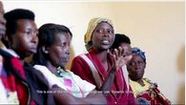
The last picture is a video link
The Prize was presented to Dr. Munyandamutsa on the occasion of the XVth World Congress of Psychiatry, held in Buenos Aires, Argentina on 21st September 2011.
Year 2014
The 2014 Geneva Prize for Human Rights in Psychiatry has been awarded to Professor Ka Sunbaunat, from Cambodia. Professor Sunbaunat founded the Department of Psychiatry at the University of Health Sciences in Phnom Penh in 1992, and directed the Department until 2013. Cambodia owes to him the development of treatment of mental illness, together with the establishment of facilities in hospitals and health centres.
Ka Sunbaunat was among the victims of the genocidal policies of the Khmer Rouge regime during the years 1975-1979, when his physical health was seriously damaged by the harsh work he was forced to do. Nevertheless, he chose to stay in Cambodia, and was the first physician to specialize in psychiatry. He is now regarded as the father of Cambodian psychiatry and, from his work with the mentally ill, as a “living symbol of resilience.”
Professor Ka Sunbaunat is convinced that assisting mentally ill patients suffering from trauma and the effects of injustice is a means of fighting against the violation of human rights. He has unceasingly continued to deepen his understanding of the links between mental health and human rights, through his teaching activities, his publications and media coverage, and has effectively helped to diminish the stigma which is often attached to mental illness in Cambodia.
Professor Ka Sunbaunat has also distinguished himself by his commitment to the values of Buddhism, the concepts of which in his eyes constitute a central paradigm in the treatment of mental illness.
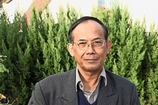
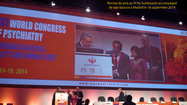
The Prize was presented to Professor Ka Sunbaunat on the occasion of the XVIth World Congress of Psychiatry, held in Madrid, Spain in september 2014.
Special Mention 2014
The Jury decided to attribute a Special Mention to Mr. Joseph Atukunda (Uganda), whose programme “Heartsounds Uganda” creates and supports active peer groups for people suffering from mental illness and psychosocial disabilities. The Jury was impressed by Mr. Atukunda’s committment to the defence of the rights of psychiatric patients, in an exceptional personal and environmental context.
Year 2017
The Geneva Prize has been awarded to a nongovernmental organization fighting for the rights of the mentally ill in Guatemala, ALAS Pro Salud Mental.
Founded in 2013 by Dr Alejandro Paiz Macz, this organization is at present the only NGO in Guatemala working to assist the access of the indigenous rural population to psychiatric care.
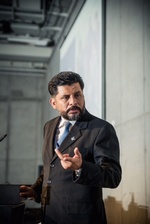
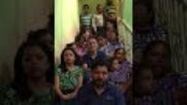


Dr. Alejandro Paiz Macz – spanish video – english video – tzutujil video
The Geneva Prize Jury particularly valued the work from among 15 candidates comprised of individuals, institutions and NGOs. The President of the Jury, Luc Ciompi, Professor Emeritus of the Department of Social Psychiatry, University of Bern, Switzerland, drew attention to the fact that ALAS PRO SALUD MENTAL works in a particularly defavourized region of the world, dominated by poverty and violence and ravaged by a long civil war and by natural catastrophes (hurricanes). In addition open discrimination exists against the indigenous population. The Jury therefore considered that the work of ALAS PRO SALUD MENTAL is courageous because of the real dangers which exist to those involved.
This NGO has been successfully fighting for human rights in Guatemala against the stigma and discrimination from which the mentally ill suffer – thus fulfilling the specific objectives of the Geneva Prize. Work is carried out on various levels : media campaigns, conferences and practical action, not only in large conglomerations but also in rural areas where the indigenous population is particularly neglected. The practical work of the NGO is comprehensive and person centered (holistic approach). It takes various forms of social rehabilitation in the community, through day centres, treatment at home carried out by family units and self-help groups. The NGO has also developed micro credits. All these actions encourage tangible results.
The Geneva Prize for Human Rights in Psychiatry was created in 1999 in Geneva, Switzerland on the occasion of the 50th anniversary of the Universal Declaration of Human Rights. The first Prize was awarded in the year 2000 by a Jury presided by Robert Badinter.
In 2017 the 20’000 Swiss francs’ Prize will be awarded for the 7th time and will be presented to ALAS PRO SALUD MENTAL in Berlin in October 2017, on the occasion of the 17th World Congress of Psychiatry.
The Board of Foundation of the Geneva Prize for Human Rights in Psychiatry is presided by Francois Ferrero, Professor Emeritus, University of Geneva, Switzerland.
The Jury of the 2017 Prize comprised international personalities : Marianne Kastrup, Denmark, Elisabeth Decrey-Warner, President of the « Geneva Call », Switzerland, Dinesh Bhugra President of the World Psychiatric Association, Great-Britain, Pierre Vallon, President of the Swiss Federation of Psychiatry and Psychotherapy, Switzerland, Robert Roth, Professor of Criminal Law, University of Geneva, Switzerland and Olivier Vodoz, lawyer, former State Councillor, Geneva, Switzerland.
The price is awarded to M Gregoire Ahongbonon.
Grégoire Ahongbonon, born in Benin, is the founder of the Association St Camille-de-Lellis, a comprehensive care system in West Africa. He opened a small tire repair business that went bankrupt and fell ill with depression. After recovering, Grégoire Ahongbonon decided with his spouse Léontine, to help mentally disturbed persons wandering the streets. He then began working with families and the community elders in the villages to provide care and support mentally ill people chained because of their illness. He has incessantly fought the prejudice and stigma surrounding mental illness. He has worked on family and public awareness to spread the idea that mental illness could be cured, and that ill people could be treated without chaining them to trees or subjecting them to atrocities.

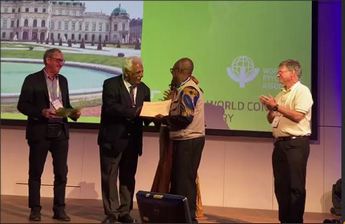
M. Grégoire Ahongbonon Geneva Prize presentation
In the years since 2003, he has transformed the mental health care in Togo, Benin, and Ivory Coast by finding ways to offer people with mental illness treatment accommodation, food, work and/or training. Many of the recovered have subsequently become engaged in the work of the Association as peer helpers. The system of care has proven affordable and adapted to its environment, respectful of human dignity and compliant with World Health Organization requirements. Supported by Missionary communities, philanthropic organizations and NGO’s, the Association has grown into an international network.
What is extraordinary is that Grégoire Ahongbonon with no training in medicine or psychiatry developed this system, solely based on his personal observations and his great humanity: he could not bear to see the mentally ill being mistreated. It seems obvious that this candidate meets the criteria set for the Prize because of his personal commitment over many years, his work to help people with mental illness and to defend their human rights. He did all this work with the continuous support provided by his spouse bestowed by a special mention by the jury of the Foundation.
You can watch a short video (14 min.) about this process by clicking here.
The 2021 Prize was supported by the Republic and Canton of Geneva and by the Swiss Medical Federation of Psychiatrists and Psychotherapists.
